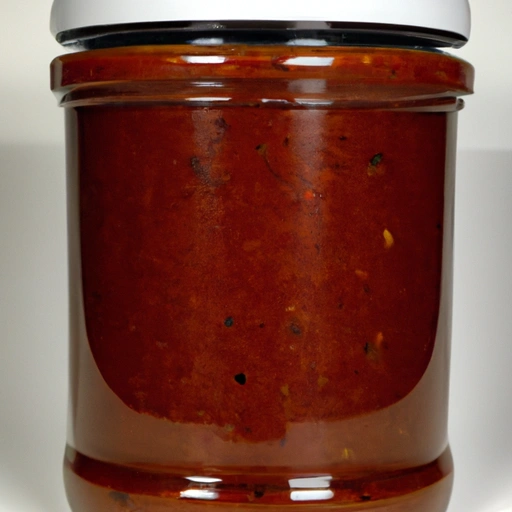Marinara Sauce
Description

Marinara sauce is a staple in Italian cuisine known for its bright, tangy, and robust flavor. This versatile sauce is made with a base of tomatoes, typically blended or crushed, and seasoned with a variety of herbs and spices, including garlic, onions, basil, and oregano. The simplicity of marinara sauce makes it a universal favorite, easily adapted and used in a multitude of recipes around the world.
Common uses
Marinara sauce is commonly used as a base for pasta dishes, as a dipping sauce for breadsticks, mozzarella sticks, and fried calamari, and as a key ingredient in parmigiana dishes. It is also a classic topping for traditional pizzas and a simmering sauce for meatballs, seafood, and vegetables.
Nutritional value
Calories
A typical serving of marinara sauce (about 1/2 cup or 120 ml) contains approximately 70 to 100 calories.
Protein
Marinara sauce provides about 2 grams of protein per serving.
Fat
This sauce is generally low in fat, with less than 1 gram per serving.
Carbohydrates
Carbohydrates in marinara sauce come primarily from the tomatoes and any added sugars, totaling around 13 to 18 grams per serving.
Vitamins
Marinara sauce is a good source of vitamin C and provides some vitamins A and K from the tomatoes.
Minerals
The sauce contains minerals such as potassium and manganese, and to a lesser extent, iron and magnesium.
Health benefits
Rich in vitamins and antioxidants from the tomatoes, marinara sauce can contribute to a healthy diet. The lycopene in tomatoes has been linked to reduced risk of heart disease and certain cancers. Furthermore, the herbs used in marinara sauce provide anti-inflammatory benefits.
Potential risks
While marinara sauce is relatively healthy, it can contain added sugars and salt, which should be consumed in moderation. Individuals with acid reflux or tomato allergies should also be cautious of their marinara sauce intake.
Common recipes
Marinara sauce is a key ingredient in spaghetti marinara, lasagna, and eggplant parmigiana. It's also used in shakshuka, ratatouille, and as a base for other sauces like arrabbiata or vodka sauce.
Cooking methods
The sauce is typically simmered to allow the flavors to meld together, but it can also be used straight from the jar if it's a pre-made variety.
Pairing with other ingredients
Marinara sauce pairs well with a variety of foods including pasta, rice, bread, vegetables, meat, poultry, and seafood. It also complements cheeses like mozzarella, parmesan, and ricotta.
Summary
Marinara sauce is a flavorful and essential component to many dishes within Italian cuisine and beyond. Its rich tomato base, seasoned with aromatic herbs, provides a deliciously simple yet versatile sauce that enhances the taste of a wide variety of recipes. Easy to prepare and rich in nutrients, it's a beloved sauce that has made its way into kitchens worldwide.